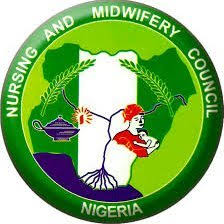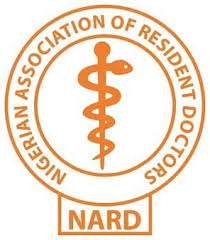To allay the fears of police victimization and ensure that gunshot victims receive prompt treatment, a law was enacted by the National Assembly. SILVER NWOKORO reports that despite the existence of this law, hospitals and their staff insist on seeing police reports before the commencement of treatment to victims, thereby abandoning the Hippocratic Oath to save lives.
Despite the existence of the Compulsory Treatment and Care for Victims of Gunshot Act, of 2017, hospitals in Nigeria have continued to abandon emergency patients in contravention of the extant law.
Section 11 of the Act clearly states: “Any person or authority including any police officer, other security agent or hospital who stands by and fails to perform his duty under this Act which results in the unnecessary death of any person with gunshot wounds commits an offence and is liable on conviction to a fine of N500,000 or imprisonment for a term of five years or both.”
The law is a clear attempt to address the hiatus in existing legislation, which the police and hospital officials capitalise on to deny gunshot victims the needed medical attention.
However — and quite sadly — six years after the law was enacted, police officers and medical personnel observed this law in breach. To accommodate the concern of the police, Section 4 of the Act states that “it shall be the duty of any hospital that receives or accepts any person with a gunshot wound to report the fact to the nearest Police station within two hours of the commencement of treatment.
“The Police may not receive any person with gunshot wounds from the hospital for investigation unless and until the Chief Medical Director of the hospital certifies him fit and no longer in dire need of medical care. This new law is in line with emergency medicine protocol worldwide.”
The Act also mandates security agents to assist persons with gunshot wounds by ensuring the victim is taken to the nearest hospital for immediate treatment, as contained in Section 2 of the Act.
Despite the clear provisions of this law, a few Nigerians have lost their lives as a result of hospitals refusing to attend to them. On July 11, 2021, a 34-year-old furniture maker, Emmanuel Samuel was shot by a policeman at Emperor Gardens Bar in Abuja where he went to watch a match with his fiancée.
He was rushed to a general hospital in Abuja where he was refused treatment on grounds that there was no police report. Consequently, Samuel gave up the ghost. Also, Ebenezer Ayeni, a resident of Ibadan was shot by some unidentified hoodlums on July 10, 2021. He was rushed to the State University College Hospital but was rejected for lack of a police report. He was rushed to a private hospital J-Rapha Hospital where he was also denied treatment. On getting to Oyemesi hospital, he was confirmed dead.
On December 25, 2022, in the Ajah area of Lagos State, a lawyer, Bolanle Raheem was shot by now-convicted Assistant Superintendent of Police (ASP), Drambi Vandi. Doctors reportedly refused to attend to her until she finally died of the injury.
Recently, Greatness Olorunfemi, a one-chance robbery victim and member of the Yali Network in Abuja, died following the alleged refusal of Maitama General Hospital, Abuja to attend to her because she did not present a police report.
Disturbed by these unsavoury developments, the Inspector-General of Police (IGP), Kayode Egbetokun in a letter signed by CP Olatunji Disu on October 28, 2023, ordered full enforcement of the Compulsory Treatment and Care for
Victims of Gunshot Act 2017 by all police formations to forestall future recurrence. A security expert, Mr Christopher Oji, said: “The law on the treatment of victims of gunshot wounds has been in existence for a very long time, because successive
IGPs have always emphasised the law, but health workers have always reneged, because of the behaviours of some unscrupulous policemen, who disobey the IGP’s directives and still move against hospitals that treat gunshot victims without Police reports.
“The law says that while treating the victim, the hospital's management should contact the police. However, some hospitals vehemently refuse to treat victims because of police extortion as some unscrupulous policemen still extort the hospitals.” He noted that the implication had been the death of innocent victims either shot by hoodlums or stray bullets before a police report was obtained.
“The police response time, bureaucracy, transportation system, communication system and bad roads can affect a victim who wants treatment and he or she may give up the ghost before a police report arrives.
“The police management team should carry out an enlightenment campaign by visiting hospitals or medical associations across the country to educate them on the need to commence treatment first before contacting the Force.
“The police should direct Commissioners of Police, Heads of Departments, Teams, Squads, Area Commanders, Divisional Police Officers, Police Public Relations Officers etc to carry out enlightenment campaigns in their various jurisdictions. However, it is not enough for the IGP to give directives without following up with punitive measures.”
Meanwhile, the National Coordinator of the Human Rights Writers Association of Nigeria (HURIWA), Comrade Emmanuel Onwubiko said there is no other justification for the continuation of the violation of the law other than the fact that most heads of governmental and non-governmental bodies often overlook their obligations to ensure that their staff and personnel are in the best frame of minds to operate in public space.
“There is a dearth of capacity-building activities and mechanisms in a lot of public and private organizations that constitute a serious cause for concern. “So, I think the heads of hospitals, the commissioners of police and non-governmental institutions need to brace up and work on an effective and efficient training system that will enlighten their workers on their responsibilities to the members of the public vis-a-vis the need for the staff to imbibe, internalize and be thoroughly informed and educated about legal templates, frameworks and statutory provisions that govern their work environment.
“This is because legislations are constantly churned out and if care isn’t taken, a lot of those workers who ought to be abreast of the workings of these pieces of legislation and laws may be left behind.
“Although ignorance of the law is not a valid excuse that obliterates someone from any legal obligations, by and large, the government, especially the federal Ministries of Health and Information must jointly work on a regular program of public enlightenment for their staff and operators in the private sector, especially those working in general hospitals, private hospitals and other tertiary health institutions with regards to modern legal trends affecting their operations,” he advised.
According to him, the legislation that permits hospitals to treat gunshots or accident victims must be used as effective educational and informational material for the constant training of hospital staff and the police.
He lamented that despite the existence of the Act, there have been cases where police commands, particularly those outside Abuja have announced in the media that persons with gunshot wounds shouldn’t be treated because they are suspected criminals.
Onwubiko stressed that such adverse public notice has the effect of creating confusion in the minds of frontline hospital staffers who often play the safe card of not getting involved in treating victims of gunshots.
He called on officials in both government and non-governmental organizations to wake up to their responsibility to the members of the public. Onwubiko urged the Attorney-General of the Federation to also print out the law in hundreds of thousands of copies and share it with members of the public as a way of equipping them with the necessary information regarding its clear provisions.
For the Convener of Access to Justice (A2J), Joseph Otteh, the ingrained fears of harassment by law enforcement and security operatives are at the core of the disobedience to the law.
According to him, some might feel they would rather avoid the harassment than put up a fight after the fact.
“They would rather play safe, even if at the expense of human life, painful as that may sound.
“Medical associations have a huge role to play here. There needs to be robust awareness-building actions to broaden public and professional information of the provisions of the Act, coupled with policy initiatives and interventions that aim to enforce the rights of gun-shot victims to medical treatment — alongside the duty of medical professionals to provide such treatment.
“Furthermore, medical associations should use their disciplinary procedures to hold medical professionals who refuse to render such services without justification, to account,” he suggested.
Ezebube Chinwike, a lawyer, lamented that the culture of disobedience to laws is endemic and involves everyone, including the three arms of government.
“Why does the executive arm of the government disobey laws and court orders? Also, how many laws are obeyed in Nigeria, especially by the executive?
“The reason doctors and hospitals constantly violate the Act is simply because of inconsistent policy dispositions. It is very easy for a doctor or medical personnel to be labelled a conspirator or accessory to a crime if a person with a gunshot wound eventually turns out to be a suspected criminal,” he pointed out.
The 2017 Act, Chinwike said, is just another victim of the devastation of the Nigerian legal system.
“In Nigeria, laws are obeyed or disobeyed at a cost. When one weighs the cost of both sides on a scale, he chooses the more convenient option, and I believe doctors and hospitals are choosing the less demanding options when it comes to treating victims of gunshot wounds,” he stated.
Citing Section 3 of the Act, which provides that hospitals can commence treatment before informing the police, Chinwike wondered how equipped hospitals are to undertake the responsibilities of making a report to the nearest Police Station and
the possibility of the police placing financial burdens and other forms of extortion on the hospital.
He noted that the discomfort of “come and write a statement” and thereafter “you go find someone to bail you” with the consequential financial demands are factors doctors and hospitals cleverly try to avoid by not accepting victims of gunshot wounds.
“If we desire this Act to be operational in terms of performance, the IGP should, as a matter of urgency, provide a seamless online report portal and designated phone numbers where hospitals can make reports to Police authorities without
interfacing with Police officers in a Police Station where they are likely, or will likely, be exposed to unwarranted exploitation,” he suggested.
President of the Admiralty Lawyers Society of Nigeria (ALSN), Angus Obinna Chukwuka pointed out that hospitals are violating the clear provisions of the law because they do not understand that they are liable to prosecutions with likely convictions and imprisonments.
“Ignorance of the law is not an excuse. They cannot claim they do not know the law exists nor claim they do not know the punishment provided under the law. By refusing to comply with the provisions of that Act, they simply make themselves parties to the crime thereof.
“It will appear that the hospitals and clinics that refuse to treat gunshot victims are still living in the past. They have not realized that the nation has moved on, that is why they still treat such victims with levity,” he said.
Chukwuka told The Guardian that in the sub-consciousness of the doctors and nurses, all gunshot victims are criminals and deserve to die by medical denials, and warned that such should not exist until otherwise proven against the patient.
However, some health professionals believe the directive by the IGP, if complied with, would save a lot of innocent lives. They tasked the police to re-strategise on the implementation of the Act and also embark on a sensitization campaign to take the message to every health worker in the country.
An Obstetrician and Gynaecologist, Dr Samuel Chinwueze Johnson, said: “On a personal note, I don’t reject victims, especially when you have the backing of the law; you have protection even if you know the person to be an armed robber. The IGP has said, ‘Accept and treat’. So, you’re not the one to investigate the fellow. The only thing you are supposed to do as a doctor is to draw the attention of the\ security personnel, that you have a gunshot patient in your facility, which you are already resuscitating and then they will do their duty to know whether after treatment they will need to pick up the person.
“Since the law backs the treatment of gunshot victims, anybody that decides not to treat does so at his own risk. If the patient dies, even if he is an armed robber, the law can catch up with such a person, because the doctor has gone against the
dictates of the law. I treat, while also requesting a police report, and if there is a delay in getting such, I can now notify the police that we have such a person that we are treating, ask them to do their investigations and advise us further on our next steps.
“Tf the patient is not responding to treatment, then we can refer to tertiary facilities. That is what I know and practice. Anybody that refuses to treat because it’s a gunshot victim is doing so on a personal note. I don’t think there is any doctor who is not aware of this law, as it has been there for a long time.
“As a health professional, you should detail what you see when the victim is brought to your facility and send it to the police; also give an account of your encounter with the victim. That is where your job ends.”




